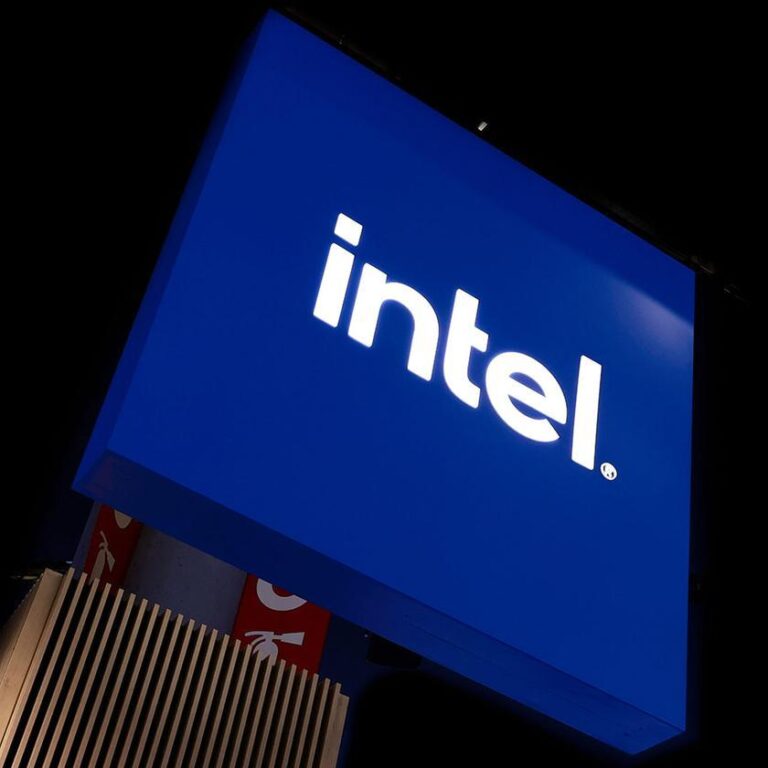Intel has announced the cancellation of its planned semiconductor fabrication plant in the European Union, marking a significant shift in the tech giant’s investment strategy amid the region’s efforts to bolster its chip manufacturing capabilities. The decision comes as Europe aims to reduce reliance on external suppliers and enhance its position in the global semiconductor supply chain, but Intel’s move raises questions about the challenges facing the continent’s ambitions in the highly competitive chip industry.
Intel’s Withdrawal from European Chip Manufacturing Raises Strategic Concerns
Intel’s decision to scrap its ambitious chip factory project in the European Union has sent ripples through the continent’s technology sector, igniting concerns about the region’s ability to maintain semiconductor sovereignty. The move marks a significant setback in Europe’s strategy to reduce dependency on Asian and American chipmakers amid escalating global supply chain tensions. Policymakers now face questions about the effectiveness of current incentives and the competitiveness of Europe’s industrial landscape in attracting and retaining high-tech manufacturing investments.
Industry analysts point to several critical implications:
- Strategic Vulnerability: Europe’s chip supply chain may remain vulnerable to external shocks and geopolitical risks.
- Investment Reallocation: Resources initially earmarked for local infrastructure may be redirected towards alternative initiatives, potentially delaying innovation.
- Market Confidence: The cancellation could dampen investor confidence in Europe’s high-tech sector and slow down efforts to build a robust semiconductor ecosystem.
| Aspect | Impact |
|---|---|
| EU Semiconductor Output | Potential decline by 15% in next 5 years |
| Jobs Created | Estimated 3,000 fewer in high-tech manufacturing |
| Investment Gap | €7 billion shortfall in local chip R&D |
Impact of Plan Cancellation on EU Semiconductor Ambitions and Supply Chain Security
Intel’s abrupt cancellation of its semiconductor fabrication plant within the EU deals a significant blow to the region’s ambitions to establish a self-reliant chip manufacturing ecosystem. The move not only sidelines efforts to reduce dependency on Asian markets but also raises critical questions about the region’s capability to attract and retain strategic investments in advanced technology sectors. This setback occurs amidst growing geopolitical tensions and the increasingly urgent need for enhanced supply chain resilience, potentially prompting the EU to revisit its semiconductor strategies and incentives framework.
The disruption reverberates through several facets of the industry, including:
- Supply Chain Vulnerabilities: Europe’s reliance on external suppliers for critical components remains unabated.
- Investment Climate: Investor confidence could wane amid uncertainties surrounding policy support and market competitiveness.
- Innovation Pipeline: Delays in state-of-the-art fabrication capabilities hinder research collaboration and technological advancements.
| Aspect | Pre-Cancellation Outlook | Post-Cancellation Impact |
|---|---|---|
| EU Market Share | Projected growth to 20% | Stagnation below 15% |
| Supply Chain Security | Moderate risk reduction | Continued high risk |
| Investment Levels | Rising with government backing | Potential slowdown |
Policy Recommendations to Strengthen Europe’s Competitiveness in Global Chip Production
To counterbalance recent setbacks in semiconductor investments, the European Union must intensify efforts in fostering an innovation-friendly environment that appeals to global chip manufacturers. Enhancing public-private partnerships and streamlining regulatory procedures can significantly accelerate project timelines and reduce bureaucratic delays. Moreover, a focus on targeted subsidies and tax incentives tailored to cutting-edge research in advanced node technologies could attract higher-caliber investments and talent to the region.
Additionally, strategic investment in critical infrastructure, such as reliable energy supplies and ultra-fast digital networks, is essential to support manufacturing scale-up. Policymakers should prioritize workforce development programs aimed at equipping technicians and engineers with specialized semiconductor fabrication skills. The following table outlines priority actions and their potential impact on Europe’s semiconductor landscape:
| Key Action | Expected Outcome |
|---|---|
| Streamlined permitting process | Reduced project delays by up to 30% |
| Enhanced R&D tax incentives | Boost in innovation outputs |
| Workforce training programs | Addressing skills shortages |
| Upgrading energy and digital infrastructure | Improved manufacturing reliability |
In Retrospect
Intel’s decision to cancel its planned semiconductor factory in the European Union marks a significant setback for the region’s ambitions to bolster its chip manufacturing capabilities amid global supply chain challenges. As policymakers and industry leaders assess the broader implications, the move underscores the complex dynamics of technology investment and geopolitical considerations shaping the semiconductor landscape. The future of Europe’s chip independence now faces renewed uncertainty, with stakeholders poised to reevaluate strategies in an increasingly competitive market.




